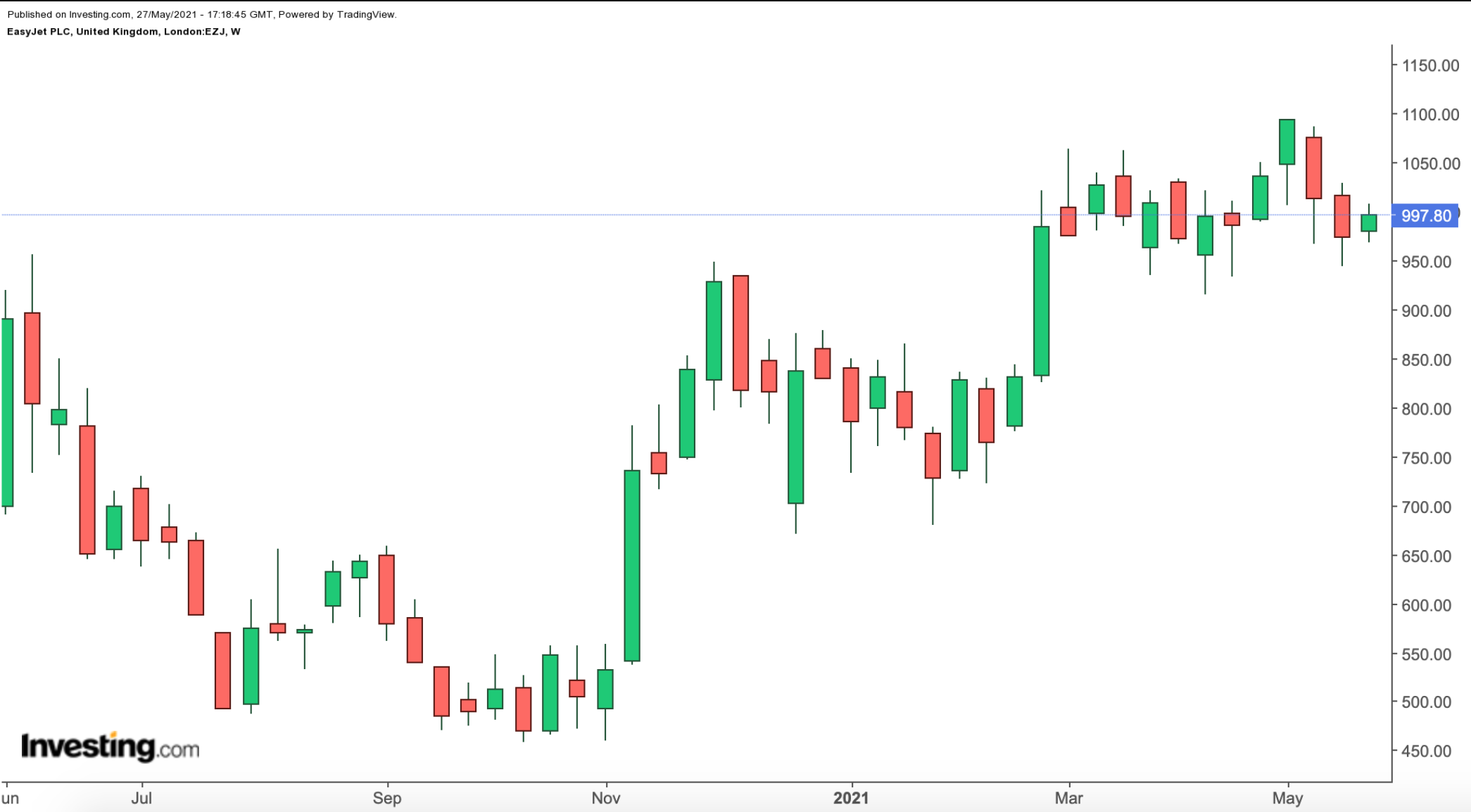European Union countries look poised to welcome vaccinated travellers from an increasing number of countries in the coming weeks. Meanwhile, the UK currently is following it color-coded travel system (i.e., red, amber and green). Residents from the UK have already started visiting countries on the green list, which include Portugal, Iceland and Gibraltar within Europe. Airlines are hoping that the green list will grow soon.
There has been a significant uptick in the number of air travellers in the US, too. The US Transportation Security Administration (TSA) releases daily traveller numbers.
On Wednesday, May 26, the traveller throughput was 1,618,169. By comparison, 52 weeks ago on Wednesday, the number was 261,170. And in 2019, it had been 2,269,035. Four weeks ago on Wednesday, April 28, the throughput was 1,184,326.
The number of air travellers is still significantly off pre-pandemic levels. Yet, there is a steady increase of people getting aboard a plane. As a result of the improving consumer and investor sentiment, shares of travel and leisure companies, especially airlines, have been getting significant attention.
Year-to-date, the Dow Jones Travel & Tourism and the {{20005|Dow Jones Airlines}} indices are up about 5.7% and 30.9%, respectively. Similarly, since the start of the year, shares of American Airlines (NASDAQ:AAL), Delta Air Lines (NYSE:DAL) and United Airlines (NASDAQ:UAL) have returned more than 51.2%, 18.2% and 34.1%, respectively.
In the UK, airline shares are also heavily traded. Today, we take a closer look at the FTSE 250 member EasyJet (LON:EZJ) (OTC:ESYJY). In the past 52 weeks, EZJ stock is up 76%, while YTD returns are about 18%.

On May 27, the shares closed at 997.8p ($14.43 for the US-based stock). Its market capitalization is £4.6 billion (or $6.5 billion).
A Point-To-Point Budget Airline
As of September 2019, the Luton-based EasyJet was the seventh largest airline in the world. The group, which launched in 1995, now operates UK-domestic and international scheduled services on more than 1,000 routes in 35 countries.
Its affiliate airlines include EasyJet UK, EasyJet Switzerland and EasyJet Europe. Together, they cover more than 150 airports. The workforce is around 14,000 people, and includes over 4,000 pilots and 8,000 cabin crew members.
On May 20, EasyJet announced its first-half results. Revenue declined by 90% year-on-year (YoY) to £240 million (or $340.4 million). Low-cost airlines like EasyJet rely on passenger revenue as well as ancillary revenue (like seat selection, extra luggage or onboard food and beverage sales). Understandably, ancillary revenue is dependent on passenger numbers.
In the case of EasyJet, first-half passenger revenue was £179 million ($253.9 million), a drop of 91% YoY. Similarly, ancillary revenue declined by 87% to £70 million ($99.3 million).
The loss of £701 million (or $994.2 million) was in line with expectations. A year ago, the loss had been £193 million ($273.7 million).
As of March, the airline had around £2.9 billion (or $4.1 billion) of liquidity. Since the start of the pandemic, management has been working on decreasing costs and the cash burn rate—which was around £38 million per week on average (or $53.9 million).
CEO Johan Lundgren said:
“With leisure travel taking off in the UK again earlier this week where we are the largest operator to Green list countries …We know there is pent-up demand – we saw this again when Green list countries were released and added more than 105,000 seats.”
In Q3, the airline expects to fly around 15% of 2019 capacity levels. With June onwards, management hopes capacity levels will increase. However, investors were not pleased with the muted outlook.
Bottom Line
In February 2020, before the pandemic reached Europe, EZJ share were hovering at 1,500p. Given EasyJet shares are already up 18% in 2021, we don’t think there could be much upside potential for the coming weeks for an airline that is expected to fly at around 15% of 2019 capacity levels.
Meanwhile, new variants of the coronavirus could easily mean fresh restrictions in Europe, leading to a decline in air travel. We believe EZJ stock would offer better value around 950p, or even below. So for now, we would not invest in the stock.
Finally, investors who are interested in EasyJet stock, but do not want to commit capital to a single company, could consider buying an exchange-traded fund (ETF) that holds the shares. Examples include:
Invesco FTSE RAFI Developed Markets ex-US ETF (NYSE:PXF) — up 16.3% YTD;
iShares MSCI United Kingdom Small-Cap ETF (NYSE:EWUS) — up 17.2% YTD;
US Global Jets ETF (NYSE:JETS) — up 20.4% YTD.
